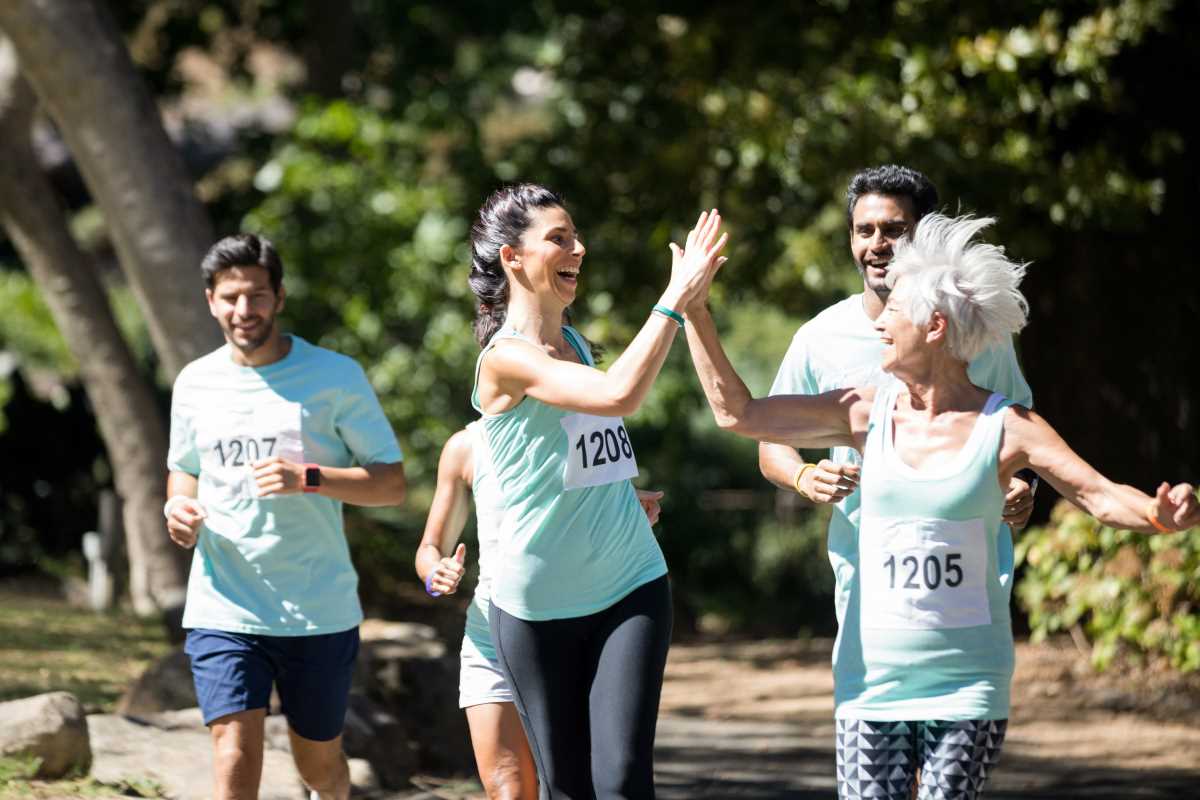Starting a sport in your 40s and beyond is often seen as something that requires a great deal of physical preparation, but in reality, it can be one of the best decisions you make for your health, happiness, and longevity. Whether you're looking to improve fitness, social engagement, or mental clarity, there are countless reasons why joining a sport later in life can be a game-changer.
1. Physical Health Benefits
One of the most immediate benefits of starting a sport in your 40s or beyond is the positive impact it can have on your physical health. The body undergoes various changes as we age, but regular physical activity can counteract many of the negative effects of aging. Here are a few key health improvements:
- Increased cardiovascular health: Regular exercise helps strengthen the heart, reduces the risk of heart disease, and boosts circulation, leading to improved overall cardiovascular function.
- Improved flexibility and joint health: Many sports promote movement that can improve joint flexibility, strengthen muscles, and even alleviate chronic pain. This can be particularly beneficial for those with arthritis or mobility issues.
- Enhanced muscle tone and strength: Sports like tennis, swimming, or weight training target muscles in ways that everyday activities don’t, helping to build strength and prevent muscle atrophy, which naturally occurs with age.
- Better weight management: Starting a sport increases your caloric burn, making it easier to manage weight and even lose those extra pounds that often come with middle age.
- Improved bone density: Weight-bearing activities, such as running, hiking, or playing basketball, help maintain bone density, reducing the risk of osteoporosis.
By committing to a regular sport, you engage in full-body workouts that can reverse the effects of aging and improve your overall fitness levels.
2. Mental Health and Cognitive Benefits
In addition to the physical advantages, participating in a sport provides significant mental and cognitive health benefits, which are especially important as you get older.
- Stress reduction: Physical activity increases the production of endorphins, the body’s natural mood elevators. Sports help reduce stress and combat symptoms of depression and anxiety, helping to improve your emotional well-being.
- Improved focus and mental clarity: Engaging in sports forces the brain to stay sharp, as it requires quick thinking, decision-making, and concentration. Studies show that regular physical activity can reduce the risk of cognitive decline and even delay the onset of dementia.
- Enhanced mood: Exercise stimulates the production of serotonin and dopamine, neurotransmitters responsible for regulating mood, improving overall happiness.
- Boosted self-esteem: The sense of accomplishment you gain from mastering a new skill or achieving a personal milestone in a sport can significantly boost your confidence and self-worth.
Incorporating a sport into your routine helps keep your mind active and sharp while enhancing your overall mental health.
3. Social Connections and Community Engagement
Starting a sport later in life also opens up a world of social opportunities. Many sports are social by nature, whether you join a local league, team, or fitness class, or simply interact with others at a community event. Here’s how sports can foster social connections:
- Building new friendships: Joining a sport often means becoming part of a team or community, where you meet like-minded individuals with similar goals and interests. This can lead to lasting friendships and a greater sense of belonging.
- Increased social interaction: Sports give you the chance to interact with others outside your immediate family and friends, which is important for maintaining an active social life and preventing isolation.
- Networking opportunities: Many sports leagues, especially those that are more competitive, offer great networking opportunities that can extend beyond the playing field.
- Support systems: Whether you're training for a marathon or playing doubles tennis, teammates offer encouragement and emotional support, helping you stay motivated.
By joining a sport, you’ll find yourself part of a vibrant community that can enrich your social life and help combat the loneliness that often accompanies older adulthood.
4. Stress Relief and a Better Work-Life Balance
As many individuals in their 40s and beyond are juggling work, family responsibilities, and personal goals, finding an effective way to manage stress becomes essential. Sports provide an ideal outlet for releasing tension and taking time for yourself. Here’s how engaging in a sport helps with stress relief and work-life balance:
- Physical relaxation: The physical exertion involved in sports helps to release tension in the body, making you feel more relaxed and refreshed after each session.
- Mental escape: Sports allow you to focus entirely on the activity at hand, providing a mental break from work or family obligations. This mental escape helps refresh your mind and allows you to return to daily life with a clearer perspective.
- Structure and routine: Regular participation in a sport brings a level of structure and routine to your schedule, encouraging you to balance time for work, exercise, and family life.
- Stress reduction: Physical activity promotes the production of endorphins, which help to naturally reduce stress, improve sleep, and prevent burnout.
Incorporating a sport into your daily life can provide a healthy outlet to manage the stresses of modern life while maintaining a healthy balance between work, family, and personal time.
5. Improved Longevity and Quality of Life
While it’s widely known that exercise is a key component of longevity, participating in a sport can significantly improve your quality of life. People who are active tend to have a higher energy level, greater life satisfaction, and reduced risk of chronic diseases, all of which contribute to a better, longer life.
- Reduced risk of chronic illnesses: Engaging in regular physical activity can lower the risk of chronic conditions such as high blood pressure, type 2 diabetes, stroke, and certain cancers.
- Increased life satisfaction: Active individuals report higher levels of happiness and life satisfaction, feeling more fulfilled overall.
- Slower aging process: Staying physically active through sports helps slow down the biological aging process by maintaining muscle mass, joint function, and heart health, all of which are crucial for a healthy and independent lifestyle as you age.
When you start a sport in your 40s or later, you not only improve your physical fitness but also invest in a higher quality of life and a greater sense of well-being.
6. How to Get Started
If you’re convinced that starting a sport is the right move, here are some steps to help you get started:
- Assess your fitness level: Understand where your body stands in terms of flexibility, strength, and endurance before diving into any sport. This will help you choose an activity that matches your current fitness level and prevent overexertion.
- Choose a sport that you enjoy: Start by selecting a sport that excites you. Whether it's tennis, swimming, golf, or cycling, enjoying the sport will keep you motivated in the long run.
- Start slow: Begin with light activity and gradually increase the intensity as your body adjusts. Give yourself plenty of time to build endurance and skill.
- Invest in proper gear: Make sure you have the right equipment and apparel to ensure comfort and safety. Proper shoes, padding, or protective gear may be necessary depending on the sport.
- Find a community or group: Joining a class or team can help keep you motivated and add a social component to your activity.
By following these steps, you can ease into your new sport and ensure you enjoy all of its benefits safely and effectively.
Conclusion
Starting a sport in your 40s and beyond is not just about improving your physical health – it’s about creating a holistic lifestyle that fosters mental clarity, emotional well-being, and social connection. The benefits of taking up a sport at any age are vast and can lead to a richer, more fulfilling life. Whether you’re seeking to increase fitness, reduce stress, or meet new people, embracing a sport can be one of the best ways to enhance your life in your 40s, 50s, and beyond.
With the right approach, starting a sport later in life is not only possible but also incredibly rewarding. So why wait? Grab that tennis racket, lace up your running shoes, or dive into a swimming pool – your body, mind, and spirit will thank you for it!
 (Image via
(Image via





